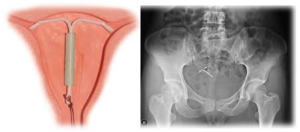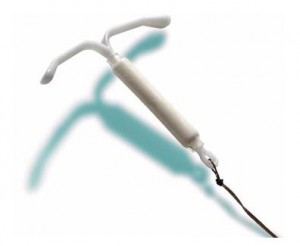Defendant Bayer has sought dismissal of all “time-barred” lawsuits part of the Mirena MDL. An update posted about the New York Mirena MDL on various legal webcasts claims that the latest petition by the IUD manufacturer came after a recent Mirena lawsuit reportedly filed two years after the injury was first reported. More than 2,500 Mirena injury claims have been filed across the United States. All federal cases are centralized under Judge Cathy Seibel of New York while Bergen County Superior Court Judge Brian R. Martinott heads the New Jersey Mirena IUD MDL comprising about 1,200 Mirena lawsuits.
Shelby Comtois sued Bayer in August 2013 claiming that she suffered from complications, including perforation of internal organs due to Mirena IUD migration, and was forced to have the removal surgery. Originally filed in a state court, the lawsuit now a part of the New York Mirena MDL alleges breach of warranty and fraud by the manufacturer of the IUD. Comtois’s husband has also been a party to the claim against Bayer seeking compensation for the loss of consortium.
In a letter addressed to Judge Seibel, Bayer argues that the Mirena lawsuit claim was time-barred. According to Georgia’s statute of limitations, one has a time limit of two years from the date of discovery of injury to make a product liability claim. Comtois took four years to file the claim. She underwent removal surgery in 2009. The defendant point out that surgical removal is an indication that she was aware of the link between the IUD and injuries by then and wants the dismissal of the claim under Georgia’s discovery rule.
In January, the court dismissed 31 lawsuits from the Mirena MDL for overstepping their respective state statute of limitations. Twelve of these claims were from Louisiana while 17 were filed by women from California. Bayer claims that at least a fifth of all claims centralized in New York are time-barred.
Court Rejects Bayer’s Pleading, Uphold Lawsuit
In August, Judge Seibel dismissed a petition by Bayer to reject a claim filed in Missouri. It claimed that an identical claim filed by her was rejected in California earlier. Ashley Brown, originally from North Carolina, found the Mirean IUD “overlying the pelvis and embedded with omentum” following a medical examination necessitated by pain two year after she went for the implant. She sued Bayer in August 2013 along with 92 others. The plaintiff too was a party to another litigation filed in June 2014 in a California court.
In February, the court rejected the California claim of Brown along with others. Bayer has urged the judge to reject her Missouri Mirena lawsuit citing the principle of res judicata or “claim preclusion for a matter already judged.” The plaintiff defended her dual filing as inadvertent citing that she engaged two Mirena attorneys and both her claims were “timely” under the North Carolina statute of limitations.
The MDL judge upheld her Missouri Mirena lawsuit citing non-application res judicata principle saying that the earlier action has no effect on the present claim, as the merits of two suits differ. Earlier a Kentucky court dismissed a Bayer plea to reject a claim and ruled in favor of the plaintiff.
If you have or any of your relatives has experienced IUD birth control side effects, including migration and perforations, contact our Mirena injury lawyer or call on 1-800-632-1404 to explore options to get financial compensation for physical suffering, trauma, economic losses, and non-economic damages.


